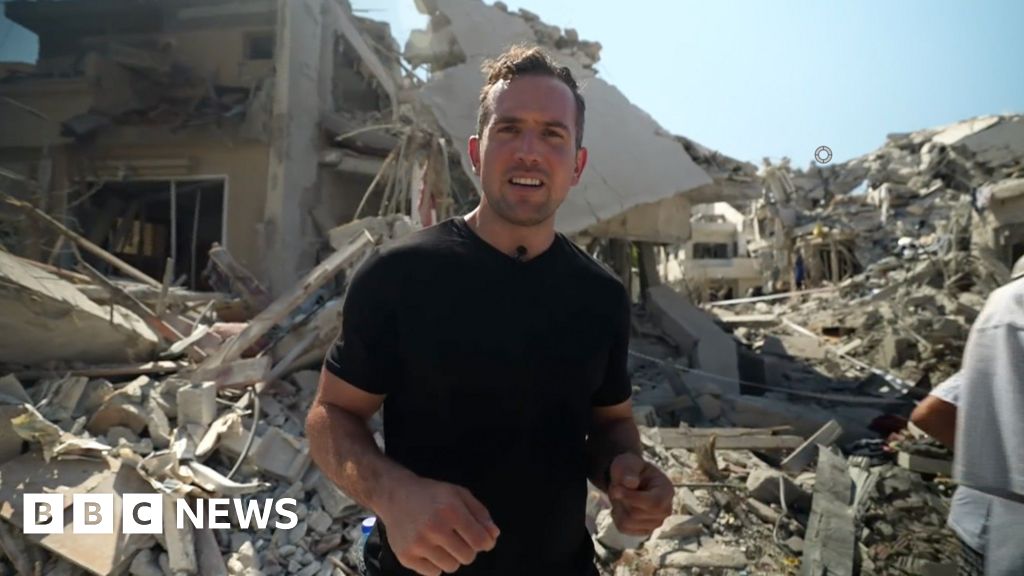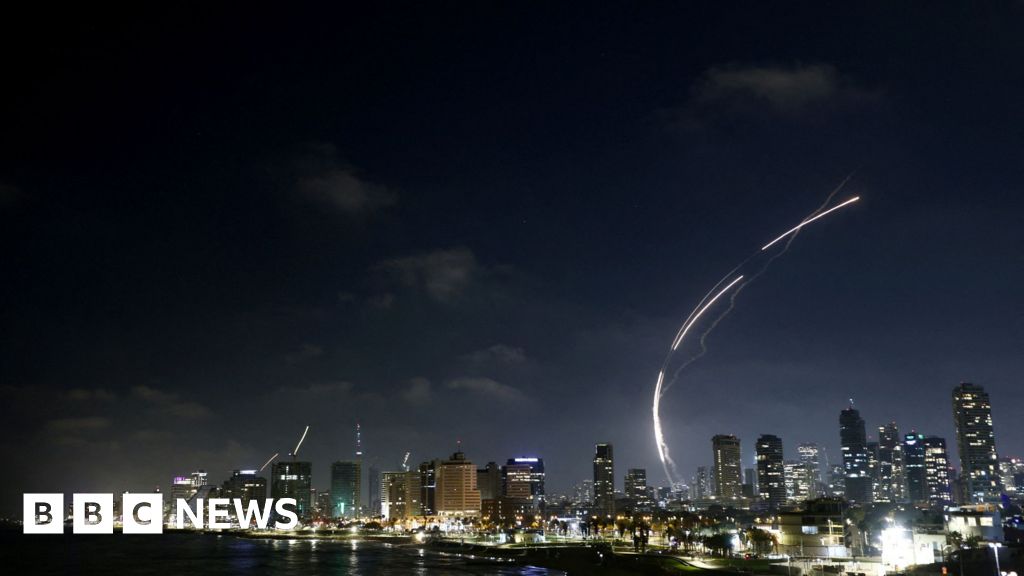ARTICLE AD BOX
By Stephen McDonell
BBC News, Beijing
Image source, Getty Images
In a time of Covid - unlike Tokyo's summer Olympics of 2021 - Beijing has found a way to put some spectators in the stands. This is how they are doing it.
The World's fastest men on skates fly around the bend, hugging the line for the quickest run possible, with only one chance for glory.
In twos they compete, whooshing past a small group of spectators, including a couple of university students carrying a Chinese flag.
These young women are more animated when their countrymen compete, but they are applauding everyone.
'We don't know anything about skating," one tells me. "We are just here to watch and cheer the athletes along, to be part of the atmosphere. It's great."
A few rows behind them, work colleagues from a state-owned enterprise sit side by side.
One of them - another young woman - happily waves a flag with an Olympic mascot on it.
"We are all from the same company," she says. "I am just glad that I had a chance to come and see an event at Olympics when most people have missed out. It's so nice to be here".
Image source, Getty Images
They are the lucky ones who have been invited to attend.
Part of the gleaming new stadium has been reserved for such groups.
A complicated configuration, dividing the arena into sections, enables them to be in the building and not come into contact with those in the two bubble zones - the teams competing and the locked-in sports media.
To be chosen as a spectator for these Olympic events, you are most likely to be from a Communist Party organisation, a state company, or a student group. There are also local government officials with tickets to the Games, sponsors, and a smattering of diplomats.
They arrive by the bus load and must abide by certain conditions.
The planners have decided that such groups can be easily counted on to do what needs to be done (especially when compared to the general public).
The thinking is that there can still be some spectators, while hopefully limiting the spread of the virus in a country which is still officially committed to a "zero Covid" or virus elimination strategy.
Then there is another category of people who are being allowed in to see these supreme athletes compete: foreign correspondents.
Beijing-based journalists have been allowed in, under similar conditions to other spectators. I am one of them.
We also have to do a Covid test 96 hours prior to any event then a second test 24 hours before. According to the rules, this is then followed up with a third test three days after and a fourth test a week later.
The BBC's Stephen McDonell undergoing a Covid test
While inside the venues we must wear N95/KN95 masks at all times.
Those attending also need to have not only completed an initial vaccination round but also had a booster shot.
We too must travel on a dedicated bus up to a corral point where they are all pulling up.
With the help of a small army of smiling volunteers marking out a specific path, we approach the stadium and enter via dedicated doors which will lead only to our section.
Volunteers lining the way into the stadium
These days virtually nobody in China uses cash for anything. Instead, people use mobile payment services like Tencent's WeChat Pay. However, inside the Olympic venues this payment form is not available. I am guessing this is a sponsorship thing.
I go to buy a drink. "Do you have a Visa card?" I am asked. "Err no," I reply.
The other option is physical money. I can't remember the last time I bought something here in this way. It's a weird feeling.
The problem however is that they don't have any change.
So the worker behind the counter pays for my drink using his own Visa card, then I pay him transferring money using WeChat pay from my phone to his. Problem solved.
Cheers for everyone
The stadium building has a striking, swooping design with combinations of lights all over it flashing and changing.
On the inside it's shiny and new.
We are even given a set of disposable sunglasses to use in case all the light bouncing off the ice is too much to bear.
With restrictions on the numbers and social distancing, the spectators in total are probably filling less than half the seats.
The mood is friendly and perhaps not as partisan as normal. All athletes are being urged on.
Image source, Getty Images
Two days later at the men's figure skating, it's the same story.
Anyone who falls is being encouraged - "Jia you!" they say in Chinese. It literally translates to "add oil" but really means something like "Come on!".
One of the biggest cheers is not for a Chinese skater but for Japan's Yuzuru Hanyu who already had a massive fan base here well before the Games began, something quite unusual for a Japanese sports star.
At the speed skating though, the Dutch don't need much encouragement to obliterate the rest of the field.
A crowd of speed skating novices can be seen nodding appreciatively, pointing and commenting to one another as Holland's finest step up and onto the winner's podium.
It's a lovely night but you can't help looking around at the empty sections of the stands and wishing that they were crammed full of punters cheering their hearts out.
In an era of Covid it is to be expected but the Winter Olympics doesn't come around every week.
Just like with Tokyo last year there is a mood of resignation, but it is tinged with a fair bit of "ahhh… if only".
Oh well, maybe Beijing will have another crack in the future?

 3 years ago
83
3 years ago
83








 English (US) ·
English (US) ·